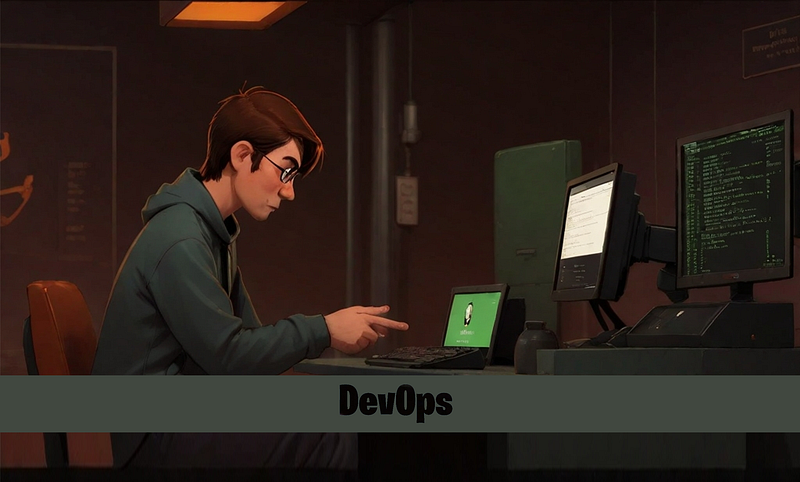Mastering Linux for Successful DevOps Practices
Written on
Chapter 1: Understanding DevOps
If you search online for what DevOps entails, you might find an explanation from AWS that describes it as a blend of cultural philosophies, practices, and tools designed to enhance an organization's capacity to deliver applications and services rapidly. This approach allows for the evolution and enhancement of products at a speed surpassing that of conventional software development and infrastructure management methods.
DevOps is undoubtedly a transformative force in the software sector, merging development and operations teams to foster an efficient workflow. This synergy results in quicker software releases, improved quality, and increased customer satisfaction.
So, what underpins this transformative process?
Linux.
While DevOps professionals utilize a variety of tools and technologies, Linux remains the core platform that provides a robust and adaptable foundation for automating and managing intricate software systems. This powerful operating system enables DevOps engineers to optimize workflows, enhance efficiency, and deliver software more swiftly and reliably.

This week, I will explore the pivotal role of Linux in DevOps. By the end of this guide, I hope you will possess a foundational understanding of how to utilize Linux in your DevOps endeavors.
Section 1.1: Why Linux is the Preferred Choice
Linux has become the operating system of choice for many in the DevOps community due to several key advantages:
- Flexibility and Customization: Linux offers remarkable flexibility, allowing users to modify the operating system to fit their specific DevOps requirements. This adaptability is essential for managing varied IT environments and supporting a wide array of applications.
- Stability and Reliability: Known for its robustness, Linux is an excellent platform for mission-critical applications and infrastructure. Its solid architecture ensures minimal downtime, allowing DevOps processes to operate smoothly.
- Open Source and Community Support: As an open-source OS, Linux benefits from a dynamic community of developers and contributors. This collaborative network provides access to a vast array of tools and resources, empowering DevOps practitioners to tackle challenges and innovate effectively.
Section 1.2: Key Linux Skills for DevOps Engineers
To excel as a DevOps engineer, mastering a variety of essential skills is crucial. Simply acquiring knowledge is not enough; proficiency and comfort in using these skills are vital.
- Command Line Interface (CLI) Proficiency: The CLI serves as the main interface for interacting with Linux systems. Becoming adept at basic commands, file navigation, and scripting will facilitate automation and efficient infrastructure management.
- Package Management: Understanding package management tools like APT, Yum, or DNF is essential for maintaining and updating software packages on Linux distributions.
- System Administration: DevOps engineers frequently engage in system administration activities, including user account management and service configuration. Familiarity with basic concepts and tools in system administration will enhance your ability to maintain and optimize Linux environments.
- Shell Scripting: Mastery of shell scripting languages, such as Bash or Python, is crucial for automating repetitive tasks and streamlining workflows in DevOps.
Chapter 2: Essential Tools for DevOps
DevOps professionals rely on numerous tools to support their daily tasks. Here are a few key tools based on Linux that we'll explore in more detail in the coming days:
- Ansible: An open-source automation platform that uses YAML playbooks to define and execute complex automation tasks, simplifying infrastructure provisioning and application deployment.
- Puppet: Another open-source automation framework utilizing a declarative language to ensure infrastructure and applications remain consistent with established policies.
- Chef: An open-source infrastructure management tool that employs recipes and data bags for the automation and management of infrastructure.
In conclusion, Linux has become an essential resource for DevOps engineers, providing a strong and flexible foundation for automating software development and infrastructure management. By mastering key Linux skills and leveraging powerful automation tools, DevOps professionals can streamline workflows, enhance efficiency, and deliver software more reliably. Embrace Linux to unlock the essential skills of a DevOps engineer and revolutionize your software development lifecycle.
Discover the fundamentals of Linux essential for DevOps through this tutorial.
Learn the must-know Linux commands that every DevOps and Cloud Engineer should master.
Until next time, remember to live simply and keep learning!